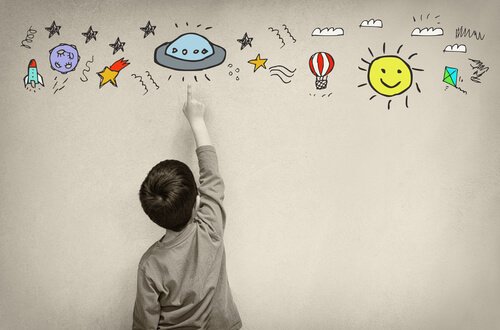Self-Concept and Academic Performance

These days, pretty much everyone understands the concept of self-esteem. You probably already know that it has to do with how much you value yourself. However, do you know what self-concept is? More importantly, do you know there’s a relationship between self-concept and academic achievement?
Self-concept and self-esteem are similar in a lot of ways, but they aren’t interchangeable. You have to understand this in order to be able to understand how it affects students’ academic performance. In fact, this area of research is key to improving our education system and the way we teach the youngest members of society.
We could define self-concept as the set of perceptions, ideas, and thoughts that an individual has about themselves. In other words, self-concept answers the question “Who am I?” It’s the idea an individual has about who they are.
So what’s the difference between self-concept and self-esteem? Well, self-concept simply describes the image that you have of yourself. There’s no judgment or evaluation of that image. Self-esteem, on the other hand, is the subjective evaluation that you make about your own personal characteristics.
Self-concept is the construct based on the relationships that the subject has with society and their environment. Thus, the way you see yourself significantly influences how you act in different spheres of your life.
Child psychologist Elisabet Rodriguez Camon believes that two authors have changed the study of academic performance. One is Howard Garner with his theory of multiple intelligences, and the other is Daniel Goleman with his book Emotional Intelligence. The latter talks about the importance of self-concept.
In this article, we’re going to see how these ideas apply to education.

Academic performance
One widely-accepted definition of academic performance is a student’s learning and response ability. In order to understand this phenomenon, however, you have to understand the different factors that affect it.
There are a variety of elements that academic performance depend on. Some important and obvious ones are the students’ aptitude and motivation. However, there are other factors that we can’t forget about. For example, the teacher’s abilities and skills, the educational program, the school itself, and the student’s family and social environment, among others.
These are all very important. However, one of the factors that has the most influence on a person’s learning ability is self-concept.
The relationship between self-concept and academic performance
Several studies show that there’s a strong relationship between self-concept and academic performance. That being said, how exactly does the latter relate to the former? According to recent research, there’s some data worth highlighting:
- When people who are close and significant to you evaluate you in some way, it affects how you see yourself.
- A student’s self-concept determines academic performance because, on a qualitative and quantitative level, your perception of yourself will have repercussions on the effort it’ll take you to learn something new, do difficult homework, etc.
- Self-concept and academic performance have a bidirectional and mutually influential relationship. If either of these components changes, the whole system changes until it finds a balance.
“Education is not the filling of a pail, but the lighting of a fire.”
-William Butler Yeats-

How to develop a student’s positive self-concept
In light of these discoveries, it seems obvious that developing a positive self-concept is crucial for optimal academic performance. In fact, it’s crucial as they grow and mature. Consequently, it’s important to keep the following things in mind:
- A sense of family belonging is crucial and basic. The student should be able to find compassion, interest, affection, consideration, and well-being within their family.
- It’s also important for the child to feel unique. They should feel like someone special and one-of-a-kind and understand what exactly sets them apart from other people. At the same time, they should stay humble and focused on improvement.
- The student should feel capable of achieving their goals. They’ll have to learn about the factors that come into play during that process, which will help them in the future. To do that, they’ll have to have good self-control because it will allow them to react to adversity in a better way.
- Children need a safe, stable, and coherent framework of behavior in their lives. This is where positive role models are important because they encourage and foster things that help with achievement. Having role-models around also helps when a child displays undesired behavior.
“Develop a passion for learning. If you do, you will never cease to grow.”
-Anthony J. D’Angelo-
Hopefully, this article helps you understand why a positive self-concept is important for academic performance. From the students themselves to their families, educators, and everyone else around them, we should all be invested in high-quality education.
This text is provided for informational purposes only and does not replace consultation with a professional. If in doubt, consult your specialist.








